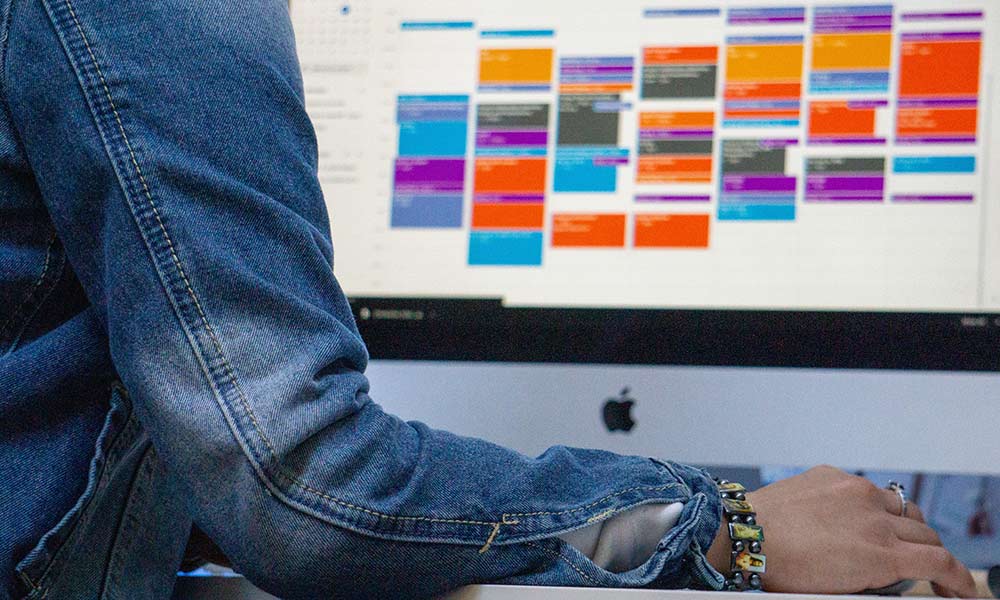10 Effective Strategies to Optimize Your Time as a Music Artist
Being a music artist is a journey filled with challenges and opportunities. Music creation is just one part of the equation; you also need to find time for rehearsals, self-promotion, and networking in the industry. With so many tasks to accomplish, it can be difficult to know where to start and how to make the most of your time. That’s why we’ve created this article to present you with 10 effective strategies that will help you optimize your time as a music artist. From time planning to task delegation, these strategies will enable you to be more efficient, organized, and productive. If you’re ready to maximize your time and take your music career to the next level, keep reading to discover our 10 proven strategies.
Set Your Music Priorities and Goals
Setting your priorities and goals as a music artist is crucial for maximizing your time and focusing your efforts on what truly matters to you. It’s important to take the time to reflect and define what you want to achieve with your music career in the short, medium, and long term. This will help you establish specific and measurable goals that you can work towards.
To set your music priorities and goals, start by thinking about what type of music you want to create, what kind of audience you want to reach, and what kind of music career you want to build. This will help you establish clear and specific objectives. Then, break them down into smaller, manageable goals that you can work on daily, weekly, or monthly.
It’s important to remember that your priorities and goals may change over time, so it’s important to be flexible and willing to adapt to the changing circumstances of your music career. Maintaining a clear and realistic focus on your goals will allow you to be more productive and focused on what truly matters.
How to Identify Your Priorities and Goals in Music
Identifying your priorities and goals in music is the first step to optimizing your time as an artist. Before you start working on your goals, it’s important to take the time to reflect on what you truly want to achieve in your music career. Here are some steps that can help you identify your priorities and goals in music:
- Make a list of your values: Before you start working on your goals, it’s important to know what your values are. Make a list of the values that are important to you in your music career, such as creativity, authenticity, or collaboration. This will help you focus on what truly matters in your music career.
- Define Your Vision: Once you have a clear idea of your values, it’s time to define your vision. What do you really want to achieve with your music career in the long term? How would you like your music career to look in the future?
- Set Specific Goals: Once you have a clear vision, it’s time to set specific goals to help you get there. Break down your goals into smaller, manageable milestones that you can work on daily, weekly, or monthly.
- Prioritize Your Goals: Not all goals are equally important. Prioritize your goals based on their importance and their contribution to your overall vision.
- Review and Adjust Your Goals: Circumstances can change, so it’s important to review and adjust your goals as needed. Stay flexible and willing to adapt to changing circumstances.
How to Establish an Effective Action Plan to Achieve Your Goals
Once you have identified your priorities and goals in music, it’s important to establish an effective action plan to achieve them. An action plan will help you define the specific steps you need to take to reach your goals and will enable you to maintain focus and motivation in the long run. Here are some tips for establishing an effective action plan:
- Define Specific Steps: Break down your goals into specific, manageable steps that you can work on daily, weekly, or monthly. These steps should be specific enough that you know exactly what you need to do to achieve your goals.
- Set Realistic Deadlines: Establishing a realistic deadline for each step will allow you to have a clear and measurable focus on your goals. It will also enable you to monitor your progress and adjust your action plan as needed.
- Identify Necessary Resources: Identify the resources you will need to achieve your goals, such as time, money, tools, or skills. If you have limitations in any of these resources, seek creative ways to overcome them.
- Track Your Progress: Keep a record of your progress to know what stage you are in achieving your goals. Use tools like spreadsheets, goal-tracking apps, or work journals to help you track your accomplishments.
- Adjust Your Plan as Needed: As you move towards achieving your goals, you may need to adjust your action plan based on changing circumstances. Don’t be afraid to adjust your plan if something isn’t working or if there is a change in your circumstances.
How to Adjust Your Priorities and Goals Based on the Demands of Your Music Career
- Maintain an Open Mindset: It’s important to be willing to change your goals and priorities if necessary. This doesn’t mean you have to abandon your dreams, but rather be prepared to adapt to market changes and the needs of your music career, whether it’s in music projects, music production, cover art, or any other aspect of your career.
- Stay Up-to-Date with Trends: To succeed in the music industry, you need to stay current with the latest trends and emerging opportunities in the market. This may involve adjusting your goals and priorities to seize new opportunities or adapt to emerging trends.
- Seek Advice: Seek advice from industry experts such as managers, agents, or producers to gain an external perspective and receive guidance on how to adjust your priorities and goals. You can also seek input from other musicians who have gone through similar situations.
- Prioritize Short-Term Goals: Sometimes, it can be helpful to adjust your short-term goals instead of completely changing your long-term goals. This allows you to continue making progress towards your long-term goals while adapting to market demands.
- Track Your Achievements: Keep a record of your achievements and regularly review your goals to ensure you’re on the right track. If you realize that your goals are no longer realistic or aligned with your current priorities, don’t hesitate to make adjustments.
Learn to Say “No” and Delegate Tasks
Being a musician can be an exciting and rewarding career, but it can also be overwhelming and exhausting. It’s common for artists to feel like they have too many responsibilities and not enough time to do everything they need to do. Learning to say “no” and delegate tasks can be a valuable tool for freeing up time and energy to focus on what truly matters: creating music and developing your music career.
- Identify Your Priorities: Before saying “yes” to any project or task, take a moment to think about your long-term music priorities and goals. Will this task or project help you move towards your goals, or will it distract you from them? If you’re unsure, you may need to say “no” to maintain your focus on what truly matters.
- Learn to Delegate: Delegating tasks will not only help free up your time but can also help build strong relationships with other musicians, producers, and team members. Identify tasks that others can do for you, such as promoting your music on social media or coordinating live events, and rely on trusted individuals to assist you.
- Set Boundaries: It’s important to establish clear boundaries for yourself and others. Make sure you have enough time for yourself and to work on your music, and don’t commit to more than you can handle. Additionally, communicate your boundaries and needs to the people you work with.
- Learn to Say “No”: Saying “no” can be difficult, but sometimes it’s necessary to protect your time and energy. If someone asks you to do something that doesn’t align with your priorities or that you simply don’t have time for, don’t hesitate to say “no”.
- Prioritize Your Mental Health: Time management can be stressful and draining. Make sure to take regular breaks and take care of your mental health. If you need to take time off or reduce your workload for a while, don’t hesitate to do so.
How to Learn to Say “No” Without Compromising Professional Relationships
Saying “no” can be difficult, especially in a competitive industry like music. It may seem that saying “no” to a project or collaboration could jeopardize your professional relationships. However, it’s possible to learn to say “no” effectively without compromising your professional relationships in the music industry.
- Be Honest: Honesty is key when it comes to saying “no”. If you can’t commit to a project or collaboration, it’s important to be honest about it. Make sure to clearly explain your reasons and offer alternatives if possible.
- Express Gratitude for the Offer: Expressing gratitude for the offer is a way to show appreciation for the opportunity, even if you can’t accept it. Remember that the music industry is a small world, and it’s important to maintain positive relationships.
- Offer Alternatives: If you can’t commit to a particular project or collaboration, consider offering alternatives that may work better for you. For example, if someone asks you to perform at a concert but you can’t commit to the schedule, consider offering an acoustic set instead of a full performance.
- Be Clear and Firm: It’s important to be clear and firm when saying “no”. If you can’t commit to a project, leave no room for misunderstandings. Be clear about your limitations and don’t commit to something you can’t fulfill.
- Maintain a Professional Attitude: Maintaining a professional attitude is crucial when it comes to saying “no” in the music industry. Don’t let emotions get in the way of your professional relationships. Make sure your words and actions are always respectful and professional.
How to Identify Tasks You Can Delegate and to Whom
As a musician, it’s common to feel like you have to do everything yourself, but the truth is that delegating tasks is a valuable skill that can save you time and energy. To identify tasks you can delegate and to whom, follow these steps:
- Make a List of Your Tasks: Make a list of all the tasks you have to do in your music career, from recording and music production to promotion and marketing.
- Assess Your Skills and Strengths: Evaluate your skills and strengths to identify tasks you are good at and enjoy doing. These are the tasks you should retain.
- Identify Tasks You Don’t Enjoy or Aren’t Good At: Identify tasks you don’t enjoy or aren’t good at. These are the tasks you can delegate.
- Find Someone You Trust: Find someone you trust to delegate the tasks you identified in the previous step. It can be an existing team member or someone you specifically hire to perform those tasks.
- Communicate Clearly: Make sure to communicate your expectations and the desired outcomes clearly. It’s important that the person you delegated to understands what is expected of them.
- Follow Up: Ensure to follow up and verify that the tasks are completed as agreed upon. This will help you ensure that the work is being done correctly and on time.
How to Establish an Effective Task Delegation System for Your Music Team
If you’re a musician with a team, it’s important to establish an effective task delegation system to ensure that all tasks are completed efficiently and on time. Here are some steps you can take to establish an effective task delegation system for your music team to maintain high quality in your projects:
- Define Roles and Responsibilities of Each Team Member: Define the roles and responsibilities of each team member. Ensure that each team member understands their responsibilities and the work expected from them.
- Clearly Communicate Expectations: Clearly communicate expectations regarding deadlines, quality, and desired outcomes. It’s important that each team member can read clean and clear texts and understand what is expected of them.
- Assign Tasks Based on Each Team Member’s Skills and Strengths: Assign tasks based on each team member’s skills and strengths. This will help ensure that each task is completed efficiently and on time.
- Ensure Each Team Member Has Necessary Resources: Ensure that each team member has the necessary resources to effectively complete their task. This may include tools, equipment, budget, time, information, and other resources.
- Set Clear Deadlines: Set clear deadlines for each task. Ensure that each team member understands the deadlines and knows when their task is expected to be completed.
- Provide Regular Feedback: Provide regular feedback on progress and performance. This will help ensure that the work is being done correctly and on time.
- Give Recognition and Motivation: Give recognition and motivation to your team when they effectively and timely complete their tasks. This can include public recognition, compensation, and other incentives.
Discover Tools and Techniques for Time Management in Music
Effective time management is crucial for any musician as it allows them to balance their personal and professional responsibilities while progressing in their music career. Fortunately, there are several tools and techniques that can help musicians optimize their time and increase their productivity. Here are some time management tools and techniques in music that you can consider:
- Calendars and Planners: Calendars and planners can help you keep track of your commitments and daily tasks. You can use a variety of digital tools to create and maintain your calendar, such as Google Calendar, Trello, Asana, among others. You can also opt for a physical planner to keep a daily record of your activities and tasks.
- To-Do Lists: To-do lists are a great way to keep track of pending tasks and prioritize them based on their importance. You can create a daily or weekly to-do list and check off each task as you complete it.
- Pomodoro Technique: The Pomodoro Technique is a time management method where you work on tasks for a fixed period of time, typically 25 minutes, followed by a short 5-minute break. This can help you focus on a specific task without distractions.
- Delegation: As mentioned earlier, learning to delegate tasks can help you save time and increase your productivity. Identify tasks that you can delegate to other team members or contractors and trust them to complete the tasks.
- Automation: Automation can help you save time on repetitive and tedious tasks, such as scheduling social media posts, sending emails, and creating playlists. You can use tools like Buffer, Hootsuite, or Mailchimp to automate these tasks.
- Prioritization: Prioritization is key to effective time management. Identify the most important tasks and prioritize them based on their importance and urgency. This will allow you to focus on critical tasks and ensure they are completed on time.
Tools and Techniques to Improve Time Organization as a Music Artist
As a music artist, it’s essential to learn how to manage time effectively in order to fulfill the daily responsibilities. To achieve this, there are various tools and techniques that can help you improve your organization and increase productivity. Some of these tools include:
- Digital Calendars and Planners: Using a digital calendar like Google Calendar or a virtual planner can help you schedule and plan your day more efficiently. You can set reminders, deadlines, and organize your meetings and rehearsals in an orderly manner.
- Task Management Apps: Applications like Trello, Asana, or Monday.com allow you to create to-do lists and assign tasks to yourself or other members of your team. These apps also enable you to set priorities, due dates, and track the progress of your tasks.
- Time Management Techniques: Techniques like the Pomodoro Method or the Eisenhower Matrix can help you prioritize your tasks and focus on the most important ones. The Pomodoro Method involves working for 25 minutes and taking a 5-minute break, while the Eisenhower Matrix helps you classify tasks based on their importance and urgency.
- Task Automation: Utilizing automation tools such as email programs, social media scheduling, and digital marketing can save you time and increase efficiency. Scheduling emails or social media posts in advance can free up time to focus on other tasks.
- Task Delegation: As mentioned earlier, delegating tasks is an important skill for any music artist. By delegating tasks to other team members, you can reduce your workload and have more time to focus on tasks that require your attention.
How to Incorporate Technology into Your Time Management as a Music Artist
Technology can be a valuable tool for improving time management for a music artist. Here are some tips for incorporating technology into your time management as a music artist:
- Use Time Management Apps: There are many apps available that can help you manage your time more effectively. These apps allow you to create to-do lists, set reminders, schedule meetings, and much more. Some popular time management apps include Trello, Asana, Todoist, Focus@Will, among others.
- Use planning tools and calendars: You can use online planning tools and calendars to schedule your activities and events. These calendars can be shared with your team and allow for better time organization. Some popular options include Google Calendar, Outlook Calendar, and Apple Calendar.
- Utilize online collaboration tools: Online collaboration is increasingly common in the music industry. Tools like Dropbox, Google Drive, and OneDrive allow you to share audio files, documents, and other resources with your team online, making collaboration and time management easier.
- Automate routine tasks: Repetitive tasks can consume a lot of time and energy. You can automate some of these tasks using tools like IFTTT or Zapier, which allow you to create automation rules for specific tasks.
- Harness the power of social media: Social media can be a powerful tool for promoting your music and connecting with fans. However, it can also be a significant distraction. Use tools like Hootsuite, Buffer, or Sprout Social to schedule posts and manage your social media more efficiently.
Time management techniques used by successful music artists and how to apply them to your own career.
Time management is a key aspect for any successful music artist. Here are some time management techniques used by successful music artists and how to apply them to your own career:
- Set priorities: One of the most effective time management techniques is to establish clear priorities. Successful music artists often have a well-defined task list and focus on those that are most important to their career at that moment. To apply this technique, it’s important to clearly define your short and long-term goals and then establish the necessary tasks to achieve them.
- Utilize time efficiently: Successful music artists know how to use their time efficiently. Instead of wasting time on tasks that are not important or do not contribute to their career, they use their time to work on projects and tasks that allow them to advance in their career. To apply this technique, it’s important to identify the activities that help you the most in advancing your career and dedicate the necessary time to them.
- Plan and schedule: Planning and scheduling are important time management techniques that can help maximize your productivity. Successful music artists often have a well-defined schedule and effectively schedule their time. To apply this technique, it’s important to create a daily or weekly plan with all the tasks you need to perform and schedule them in your calendar to ensure they are completed on time.
- Delegate tasks: Successful music artists know that they can’t do everything themselves. They delegate tasks to their team or trusted individuals to focus on the most important tasks for their career. To apply this technique, it’s important to identify tasks that can be delegated and find qualified individuals to carry them out.
- Be organized: Organization is key to good time management. Successful music artists are often very organized and have an efficient system for managing their schedule, email, and files. To apply this technique, it’s important to have a clear and consistent organization system for all tasks and documents related to your music career.

FAQs:
What is time management and why is it important for music artists?
Time management is the process of planning and effectively using the available time to achieve specific goals. It is important for music artists because it allows them to maximize their productivity and advance in their music career.
Why is it important to set priorities in time management?
Setting priorities helps music artists focus on the most important tasks and projects for their music career at that moment, allowing them to maximize their time and energy.
How can I use time efficiently as a music artist?
Music artists can use time efficiently by focusing on tasks and projects that allow them to advance in their music career, eliminating distractions, and avoiding procrastination.
How can I plan and schedule my time effectively as a music artist?
Music artists can plan and schedule their time effectively by creating a daily or weekly task list, setting deadlines for each task, and scheduling them in their calendar.
Why is it important to delegate tasks as a music artist?
Delegating tasks allows music artists to focus on the most important tasks for their music career and maximize their time and energy. Additionally, it can help improve the quality of work by allowing skilled individuals to handle specific tasks.
How can I be more organized as a music artist?
Music artists can be more organized by using a consistent organization system for all tasks and documents related to their music career, such as a calendar, project folder, and digital filing system.
How can I avoid procrastination as a music artist?
Music artists can avoid procrastination by setting realistic deadlines for each task, breaking down large tasks into smaller and manageable ones, eliminating distractions, and avoiding multitasking.
How can I stay motivated as a music artist?
Music artists can stay motivated by setting clear and specific goals, celebrating their achievements, surrounding themselves with motivating people, and taking regular breaks to recharge.
How can I maintain a balance between my music career and personal life?
Music artists can maintain a balance between their music career and personal life by establishing clear schedules and limiting the time dedicated to their music career in order to enjoy activities and relationships outside of it.
Why is it important to regularly review and adjust my time management strategy as a music artist?
Regularly reviewing and adjusting the time management strategy allows music artists to adapt to changes in their music career and maximize their productivity and efficiency at all times.
CONCLUSION:
Optimizing your time as a music artist is essential to achieve your goals and advance in your career. By applying these 10 effective strategies, you will be able to maximize your productivity, focus on what matters most, avoid procrastination, and maintain a healthy balance between your music career and personal life.
Setting priorities, planning and scheduling your time effectively, delegating tasks, being organized, avoiding procrastination, staying motivated, and regularly reviewing and adjusting your time management strategy are just some of the tools you can use to optimize your time.
Remember, time management is not just about working harder but working smarter. By using these strategies, you will be able to work more efficiently and effectively, allowing you to progress faster in your music career and achieve your goals more easily. So don’t wait any longer, start implementing these strategies in your life today, and get ready to achieve success as a music artist.



